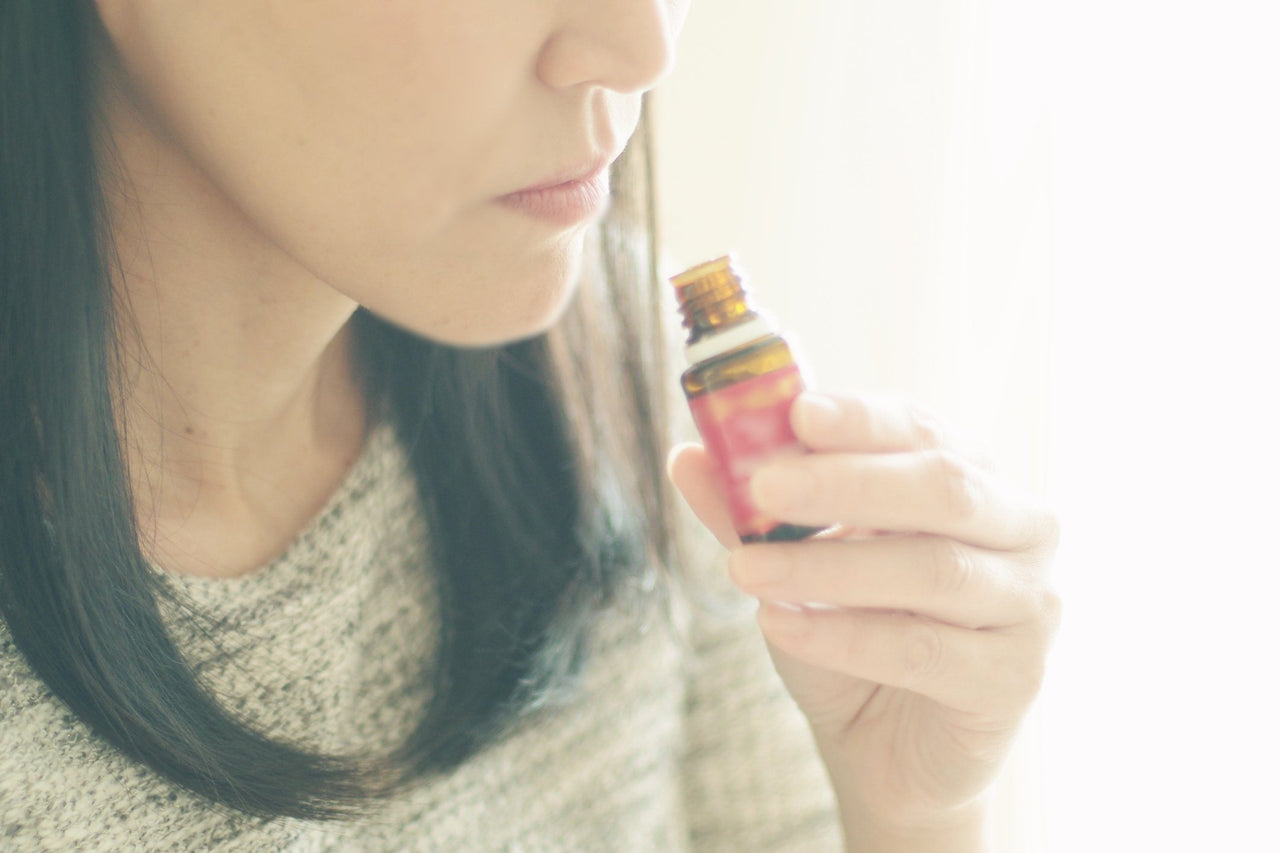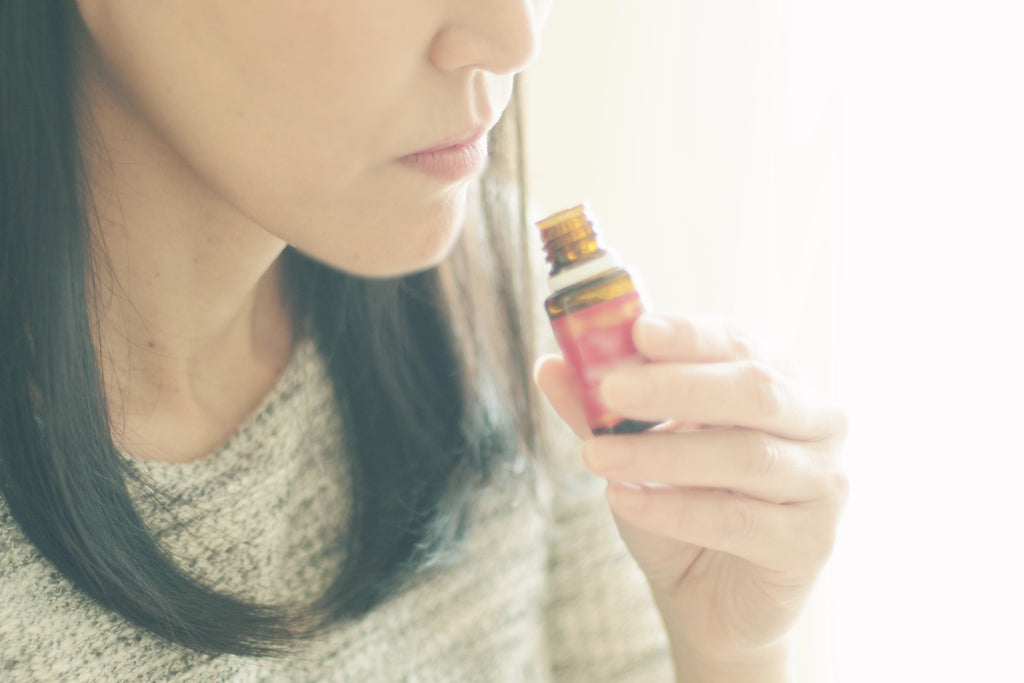Aromatherapy and Sleep: Promoting Relaxation with Essential Oils


The average person falls asleep in 10 to 20 minutes. During sleep, your muscles relax, your body rejuvenates, and your brain declutters to prepare your body for the dawn of a new day. When you get enough quality sleep, you wake feeling rejuvenated, refreshed and ready to tackle the day with renewed vitality.
Once your sleep routine gets disrupted, it can take some time to get your sleep schedule back on track. While you are likely aware of the adverse effects of sleep deprivation, knowing the consequences of too little sleep will not make falling asleep any more comfortable. Counting sheep will rarely lull an active brain into complacency. However, aromatherapy and sleep go hand in hand to create relaxation with essential oils. If you’re struggling to drift off to sleep, maybe you could benefit from the calming effects of aromatherapy.
The Historical Significance of Fragrance Therapy
Throughout recorded history, fragrant plant essences have been used to heal the mind, body, and spirit. The ancient civilizations of China, Egypt, and India, used essential oils as both alternative and complementary therapy to treat their ailments and prevent infection. It wasn't until the 1920s that French Chemist Rene-Maurice Gattefosse first coined the use of the term aromatherapy as a reference to the use of the fragrances of natural plant extracts to treat disease and injury.
While the practice of aromatherapy was passed down through the ages based on empirical evidence, today researchers have a more sophisticated understanding of the impact of fragrance on our physiology.
Aromatherapy Directly Affects Your Central Nervous System
Your body has hundreds of active receptors that respond to fragrance. It may be somewhat surprising to learn that scent directly affects your brain activities and cognitive function. During investigations to the effect of aroma on the nervous system, researchers discovered that fragrance molecules cross the blood-brain barrier, transmit electrical impulses, and are directly involved in the regulation of your central nervous system. Research confirms fragrance has a direct impact on:
- Blood pressure
- Heart rate
- Skin temperature
- Muscle tension
- Pupil dilation
- Brain activity
- Moods and emotions
- Memory and learning
Using Aromatherapy to Promote Rest
Sleep deprivation, even a few hours a week, can have a direct impact on your health and wellbeing. The effects are cumulative. Over time sleep deprivation increases your risk of heart disease, diabetes, and chronic pain.
Aromatherapy can help you relax and fall asleep, eventually resetting your natural circadian rhythms so you can fall asleep consistently and sleep better throughout the night. While a few clicks of your keyboard will likely lead you to an extensive list of essential oils that promote sleep, consider the benefits of the following:
Lavender Essential Oil
Lavender is one of the most versatile of the essential oils. While lavender is known to relax the body, it is also quite useful for cleaning, disinfecting, healing skin irritations and reducing inflammation. Lavender oil is one of the few essential oils that are safe for direct skin contact for most people. Lavender has a significant impact on your amygdala, the emotional center of your brain. Some people prefer using lavender essential oil by rubbing two drops in their cupped hand, inhaling the aroma, and then rubbing the oil on their feet, temples, or wrists.
Ylang-Ylang
Ylang-ylang comes from the flower petals of the tropical ylang-ylang tree. It has a sweet, floral aroma. Ylang-ylang is believed to be an effective antidepressant and antispasmodic that has a soothing, sedative effect. This essential oil is known to promote relaxation and calm your while relieving inflammation. Ylang-ylang can be used with an oil diffuser or inhaled directly from the bottle.
Frankincense
This extract of the Boswellia trees native to India is shown to have a strong anti-inflammatory effect. Studies on the impact of frankincense show that the fragrance of this essential oil reduces heart rates and relieves anxiety. Because of its ability to calm anxiety and the effects of chronic stress, frankincense is often considered a natural sleep aid. Frankincense also helps your body reach the ideal sleep-promoting temperature, opens breathing passages, and minimizes pain.
Catnip
Also commonly known as catmint, catnip is a member of the mint family that typically grows wild. Catnip oil has a mild, slightly minty aroma. Many essential oil enthusiasts use catnip oil for its antibiotic and astringent properties as well as to repel insects. Catnip essential oil can cause skin irritation and should not be used undiluted, particularly around your eyes. Catnip is shown to relieve tension and anxiety while promoting restful sleep.
Rose Oil
Rose oil is believed to be one of the most popular of the essential oils. It has a rich, floral aroma of the plant petals. Many aromatherapy enthusiasts find that rose essential oil has a pleasant, soothing fragrance. You may need to know that there are two types of rose oil, rose otto and rose absolute. Rose otto oil is steam distilled while rose absolute comes from chemical extraction. Some aromatherapists feel that the chemical solvents used in the extraction process of rose absolute could negatively affect the therapeutic qualities of the oil.
Methods of Adding Beneficial Fragrances to Your Environment
When using essential oils, it is important to realize that many essential oils can cause severe skin reactions and chemical burns when applied directly to your skin. If you are tempted to experiment with essential oil for topical use, always be sure to dilute your essential oil with water or carrier oil. To promote sleep, consider the following methods of diffusing fragrance to your environment:
- Place a few drops of oil (mixed with milk or sesame oil) into a relaxing bath before you turn in for the night. Without an emulsifier, oil droplets will come into direct contact with your skin and may cause a chemical reaction.
- Create an aromatic spritzer by adding 10 to 15 drops of oil into an ounce or two of distilled water in a glass spray bottle. Some essential oils can cause the plastic to degrade. Use this spray to add fragrance to the air or mist your bed linens. Before selecting oil for this method, be sure it is safe for direct skin contact.
- Place a drop of essential oil on a cotton ball (or tissue) and place the cotton on the nightstand next to your bed.
- Direct inhalation (right from the bottle) to promoting restful sleep. Again, check to verify that the oil you select is safe for direct inhalation.
- Use a Tealight diffuser by adding a few drops of essential oil to water in the basin of a ceramic oil diffuser. A ceramic diffuser typically provides a space for a tealight candle directly below the bowl.
- Purchase a mist diffuser or plug-in diffuser for use in your bedroom.
Keep in mind that electronic mist diffusers should not run for extended periods. You will likely notice that mist diffusers can make the air feel a bit "heavy" if diffusers are on extensively. Try running your diffuser an hour or so before you plan on turning in for the evening, then turn it off. While water can be used to dilute essential oils, oil and water do not mix. Any potentially irritating oil that could come into contact with your skin (even droplets from your diffuser) should combine with a carrier oil, not water, to minimize the risk of chemical burns.
Aromatherapy May Not Be Right for Everyone
While aromatherapy and sleep are shown to be beneficial, it is not right for everyone. Be cautious if you have allergies, asthma, or hypertension. If you have a medical condition, it is always best to check with your healthcare provider or an experienced aromatherapist before selecting the best aromatherapy oil for relaxation with essential oils.
Infusing your sleep environment with therapeutic essential oils can help you fall asleep easier and wake to feel refreshed. To further enhance your sleep experience, consider the value of an affordable, luxury mattress, cooling mattress topper, bedding, or pillows from Nest Bedding. We want you to love where and how you sleep. Visit Nest Bedding to learn more about our 100-night risk-free trial.



